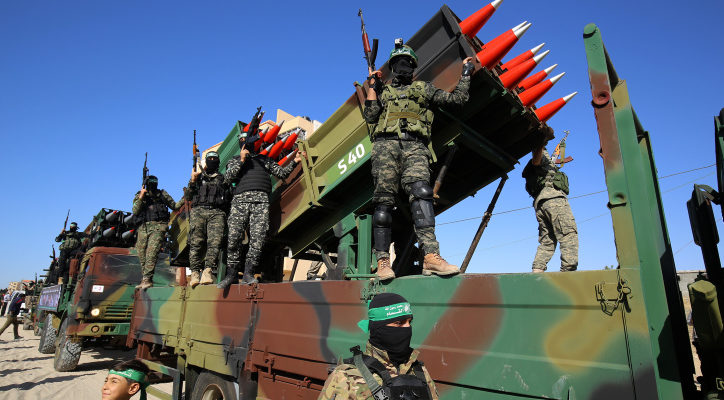In order to prevent rocket fire on Israeli communities, Jerusalem reportedly agreed to the Gaza-based terror group’s demand.
By Lauren Marcus, World Israel News
Negotiating through third parties, the Israeli government reportedly agreed to a number of demands from the Gaza-based Hamas terror group in order to prevent an escalation after hundreds of arrests at the Al-Aqsa Mosque last week.
On Friday morning, Israeli security forces arrested an estimated 470 rioters who stockpiled weapons and fireworks inside the mosque and later hurled projectiles and clashed with Israeli police.
Hamas and much of the Islamic world views the presence of Israeli authorities inside the mosque as worthy of violent retaliation. Last year, Hamas fired rockets at Israeli cities, including Jerusalem, after similar arrests on the Temple Mount.
According to Channel 12 News, Hamas was gearing up to fire on the Jewish State in the aftermath of the arrests on Friday, but an Egyptian negotiator convinced the terror group to refrain from escalation.
In a statement, Hamas said that its head, Ismail Haniyeh, had spoken on the phone with Egyptian and international officials, including United Nations Middle East envoy Tor Wennesland.
Haniyeh demanded that Israel free all those arrested on the Temple Mount, as well as pledge to halt “its killing and assassination operations in Jenin and across” Palestinian areas.
An Egyptian negotiator — identified by Qatari news as the son of Egyptian president Abdel Fattah el-Sisi — was said to have reiterated Hamas’ demand that Israel release all the rioters detained on Friday; otherwise, it would launch rockets.
Both sides reportedly accepted the proposal.
Just hours later on Saturday, Defense Minister Benny Gantz announced the end of a widespread Passover closure of crossing points from Palestinian Authority-controlled areas into Israel.
The closure had been imposed in order to stymie terrorist attacks, but Palestinians complained that the move created economic hardship, especially for businesspeople and merchants whose economic security is greatly dependent upon trade with Arab-Israelis.
However, after a fresh outbreak of clashes between Palestinians and Israeli security forces on the Temple Mount on Sunday morning, as well as widespread rioting in Arab communities in Israel over the weekend, it’s unclear if the shaky agreement between Hamas and Israel will be maintained for the long term.





